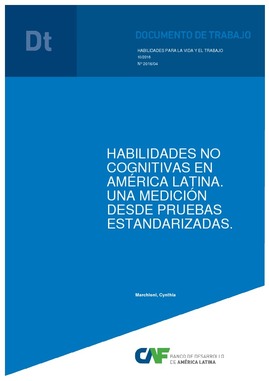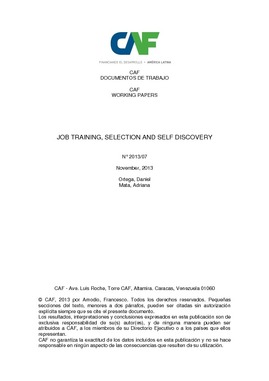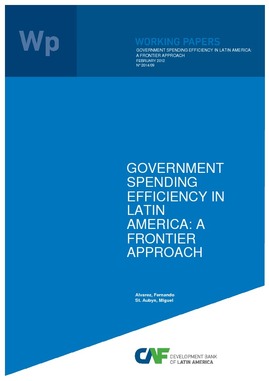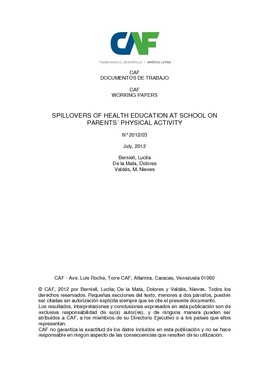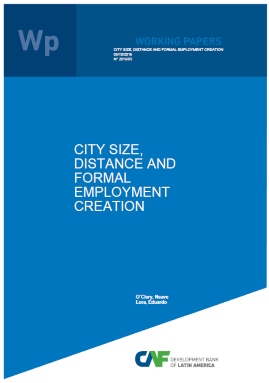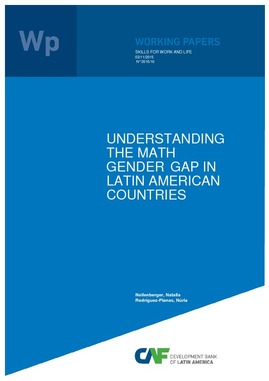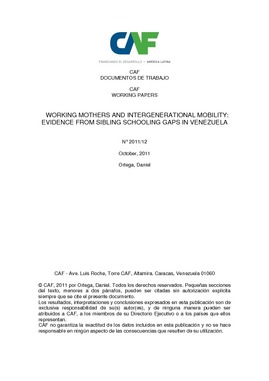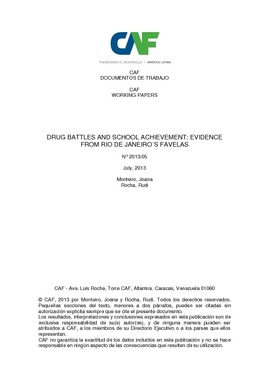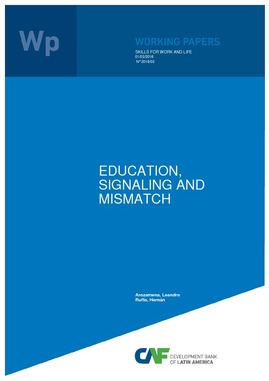Buscar
Mostrando ítems 21-30 de 31
Habilidades no cognitivas en América Latina. Una medición desde pruebas estandarizadas.
(CAF, 2016-08-31)
Medir habilidades es complejo, pues son inobservables. Este problema es particularmente importante en la medición de habilidades no cognitivas, donde usualmente se emplean métodos basados en el auto-reporte. Como alternativa ...
Diferencias en la calidad de la educación e ineficiencia: un análisis basado en el método de frontera estocástica.
(CAF, 2012)
En este trabajo se emplea información acerca del desempeño escolar a nivel de establecimiento educativo para Chile y Perú con el objeto de estudiar la eficiencia en la provisión de servicios educación en la dimensión de ...
Job training, selection and self discovery
(CAF, 2013)
We randomly assign 1250 unemployed men and women to be invited once or twice to a specific-skills training program offered by a large multinational firm as part of its social responsibility efforts. Individuals with the ...
Government Spending Efficiency in Latin America: A Frontier Approach
(CAF, 2014-09)
Government spending efficiency in providing education and health is evaluated across countries of the world, with a special emphasis on Latin American countries. Using stochastic frontier and data envelopment analysis, it ...
Spillovers of health education at school on parents´ physical activity
(CAF, 2012)
To prevent modern health conditions like obesity, cancer, cardiovascular illness, and diabetes, which have reached epidemic-like proportions in recent decades, many health experts argue that students should receive Health ...
City Size, Distance and Formal Employment Creation
(CAF, 2016-10-09)
Cities thrive through the diversity of their occupants because the availability of complementary skills enables firms in the formal sector to grow, delivering increasingly sophisticated products and services. The appearance ...
Understanding the Math Gender Gap in Latin American Countries
(CAF, 2015-12)
This paper documents that the math gender gap in Latin America is larger than in other developing or developed countries and that such gap do not decrease after controlling for individual, family and school characteristics. ...
Working mothers and intergenerational mobility: evidence from sibling schooling gaps in Venezuela
(CAF, 2011)
This paper documents the change in intergenerational mobility over the 35 year period between 1975 and 2010 in Venezuela and finds that equality of opportunities increased significantly from the mid 1970's until around ...
Drug battles and school achievement: evidence from Rio de Janeiro's favelas
(CAF, 2013)
This paper examines the effects of armed conflicts between drug gangs in Rio de Janeiro's favelas on student achievement. To identify the causal effect of violence on education, we explore variation in violence that occurs ...
Education, Signaling and Mismatch
(CAF, 2016-06)
We assess the importance education as a signal of workers skills and the e¤ects of poor signaling quality on labor market outcomes. We do so by merging a frictional labor market model with a signaling setup where there is ...


